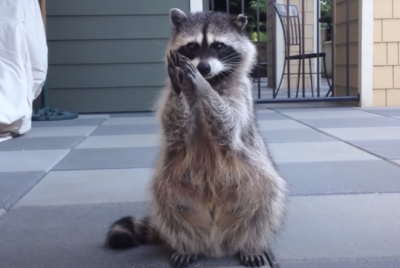How Much Damage Can a Raccoon Cause?
Raccoon damage is an issue that many people don’t really into account when buying a home. But dealing with the aftermath can be often irksome and unpleasant, so what we’re looking to do is inform you of the extensive damage a raccoon can cause.
Now, the main area of the house a raccoon will usually take up residence in is the attic. The raccoon is drawn to the darkness and the relative safety of the attic and can find its way up there quite easily through the exterior of the house. And once you’ve got them in there, it can be rather difficult to get them out.
Don’t be fooled by a raccoon’s size.
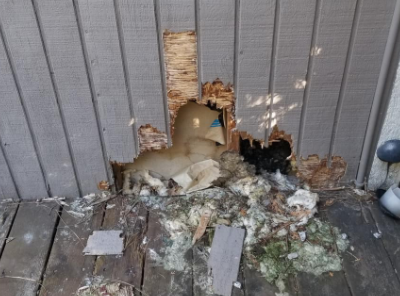
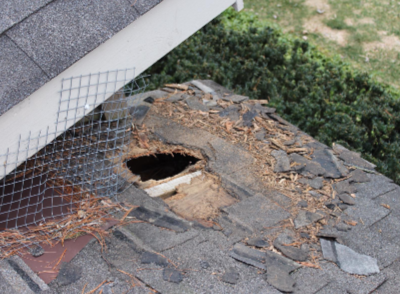
Although small and not particularly threatening, raccoons are surprisingly strong and can be vicious when left to roam around a house. They are also really intelligent animals and can be quite determined. Which means that when they’ve taken it into their heads to chew through your attic, they will do it, since a raccoon will eat anything.
Raccoons are a danger to your ducts.
One of the most common issues people experience when a raccoon has visited their attic is that they chew straight through their air ducts and often tear then from their place altogether. Many people start worrying about the raccoons living in their attic only once their air conditioning has been damaged.
Raccoons can wreck your attic’s insulation.
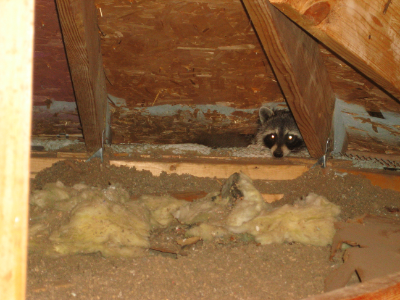
These creatures, once thought to be tiny bears, can make a mess of your insulation as well. It’s quite common to find that a raccoon has torn insulation pipes and trampled your insulation quite quickly, as they’re rather heavy creatures.
Also, many raccoons nestling in attics are pregnant females, and it is a habit for them to clear up large surface areas to have a place to rest both for themselves and their babies. Now, while that may be endearing, it’s certainly not good news for your insulation!
Once a raccoon moves in, you’re more than likely to experience trouble keeping warm in the winter months and also keeping the house cool during the summer.
Raccoons can and will rip holes in the wall.
As we mentioned, raccoons are highly determined creatures. They have no trouble ripping a hole straight through your attic wall if they want to get in or out.
Raccoons can chew through your electrical wires.
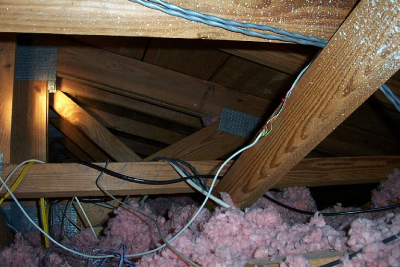
Again, not something high on the homeowners’ list, is it? But this is by far one of the biggest dangers a raccoon will expose you to. While they mean no harm by it and are simply looking for things to chew on, raccoons expose wires. And those exposed wires can pose an immense fire hazard and thus endanger you and your family.
Raccoons can seriously damage the structure of your attic.
Once again, while they’re looking for things to chew on, raccoons will attack the wood in your attic. They will chew through beams and often, the damage caused can be so serious as to compromise the sustainability of your attic.
Lastly, raccoons will leave droppings and urine in your attic.
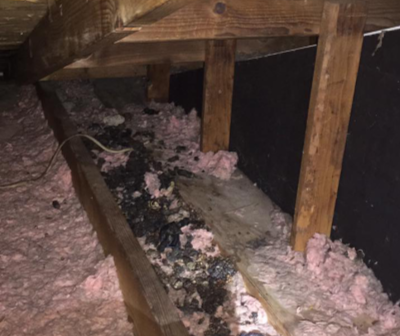
It stands to reason that they would, doesn’t it? And this can be another huge risk both to you and your family’s safety. Animal urine and feces are an excellent breeding ground for disease. Leaving exposed raccoon feces in your attic can lead to roundworm eggs, which pose a great risk to your nervous system and can sometimes even result in death.
Why do raccoons do these things?
Raccoons are highly destructive creatures and with no natural enemy in the wild, they can take it into their heads to wreak havoc in your home. But much of the damage caused by raccoons is done in the search for nesting material and other things to help them build a home, as it were. Ironic really, since in doing that, they’re effectively ripping through yours.
What can you do to get rid of raccoons?
What you want to do is get out all the raccoons hiding in your attic and efficiently cover the holes they used to come in, otherwise more will follow. Once your attic is raccoon-less, begin assessing the damage, cleaning, and sanitizing the space.
We’d encourage you to make sure that your house insurance covers raccoon damage since it can be quite costly to repair.
